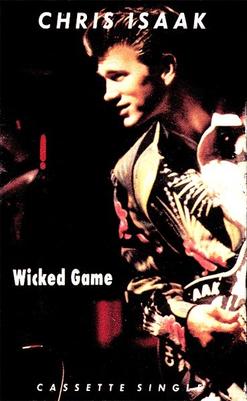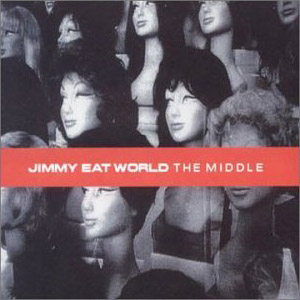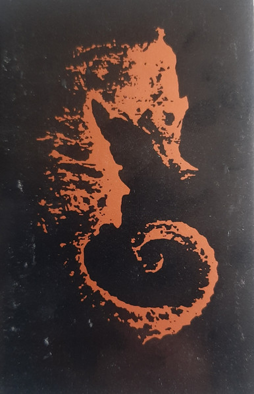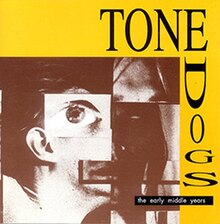
Thomas Börje Forsberg, better known by the stage name Quorthon, was a Swedish musician. He was one of the founders, as well as the sole songwriter, of the band Bathory, which pioneered the black metal genre and is credited with creating the Viking metal style. A multi-instrumentalist, Quorthon wrote the music and lyrics on all of Bathory's albums and performed vocals and guitars.

Tone Float is the only LP by the German band Organisation zur Verwirklichung gemeinsamer Musikkonzepte (Organisation.) Organisation was a predecessor to Kraftwerk, which was formed by two members of the band, Ralf Hütter and Florian Schneider-Esleben, after the album's release.

Pills 'n' Thrills and Bellyaches is the third studio album by English rock band Happy Mondays, released on 5 November 1990 by Factory Records. DJ Paul Oakenfold and collaborator Steve Osbourne were previously enlisted by the band for remixes. The success of these led to the pair producing "Step On", a cover of the John Kongos song, for Happy Mondays. The band went on a tour of the United States, and by the end of which, had started recording their next album with Oakenfold and Osbourne at Capitol Studios in Los Angeles, California. They returned to the United Kingdom, where further recording took place at Eden Studios in London until September 1990. Described as a Madchester album, Pills 'n' Thrills and Bellyaches saw substantial input from Oakenfold and Osbourne, with the former making loops, while the latter handled song arrangements.

Diamond Dogs is the eighth studio album by English musician David Bowie, released on 24 May 1974 through RCA Records. Bowie produced the album and recorded it in early 1974 at Olympic and Island Studios in London and Ludolph Studios in the Netherlands, following the disbanding of his backing band the Spiders from Mars and the departure of producer Ken Scott. The absence of Mick Ronson led Bowie to play guitar on the record. The album featured the return of Tony Visconti, who had not worked with Bowie for four years; the two would collaborate for the rest of the decade. Musically, it was Bowie's final album in the glam rock genre, though some songs were influenced by funk and soul music, which Bowie embraced on his next album, Young Americans (1975).

Having a Rave Up with the Yardbirds, or simply Having a Rave Up, is the second American album by English rock group the Yardbirds. It was released in November 1965, eight months after Jeff Beck replaced Eric Clapton on guitar. It includes songs with both guitarists and reflects the group's blues rock roots and their early experimentations with psychedelic and hard rock. The title refers to the driving "rave up" arrangement the band used in several of their songs.

"Wicked Game" is a song by American rock musician Chris Isaak, released from his third album, Heart Shaped World (1989). Despite being released as a single in July 1989, it did not become a hit until it was featured in the 1990 David Lynch film Wild at Heart, starring Nicolas Cage and Laura Dern. Lee Chesnut, an Atlanta radio station music director who loved David Lynch films, began playing the song, and it quickly became an American top-10 hit in January 1991, reaching number six on the Billboard Hot 100, making it the first hit song of Isaak's career. The single also became a number-one hit in Belgium and reached the top 10 in several other nations.
Soleilmoon Recordings is an American record label that began in 1987 as a cassette label, operating from the back of a record shop called the Ooze in Portland, Oregon, US.

Private Parts and Pieces VI: Ivory Moon is the eleventh studio album by English multi-instrumentalist and composer Anthony Phillips. It was released in January 1986 by Passport Records in the United States and Canada as the sixth instalment in his Private Parts & Pieces album series. Ivory Moon consists entirely of piano pieces written between 1971 and 1985, with all tracks recorded in August 1985. It is Phillips's first album not to feature him as a guitarist.

"The Middle" is a song by American rock band Jimmy Eat World. It was released in October 2001 as the second single of their fourth album, Bleed American (2001). It was a number-five hit on the US Billboard Hot 100 in 2002 and reached the top 50 in Australia, Ireland, New Zealand and the United Kingdom. The song was a breakthrough hit for Jimmy Eat World, who had self-financed the recording of the Bleed American album after being dropped by Capitol Records in 1999. It is considered the band's signature song.
"Hard to Handle" is a 1968 song written by American soul singer Otis Redding along with Al Bell and Allen Jones. Originally recorded by Redding, it was released in 1968 as the B-side to "Amen". The song also appears on the 1968 album The Immortal Otis Redding. Redding's version reached No. 38 on the Billboard R&B charts and No. 51 on the pop charts.

The Oregon Symphony, based in Portland, Oregon, was founded in 1896 as the Portland Symphony Society; it is the sixth oldest orchestra in the United States, and claims to be one of the largest arts organizations in the Pacific Northwest. The Symphony has released nineteen studio albums and one compilation album through the record labels Delos, Koch International Classics, Albany and PentaTone Classics. The first recording, Bravura (1987), was released under the artistic leadership of James DePreist. It received favorable reviews and was the first of three released through Delos. The next two recordings were collections of compositions by Sergei Rachmaninoff and Pyotr Ilyich Tchaikovsky.
Tone Dogs was an avant-prog group founded in 1987 by bassist Fred Chalenor and vocalist/saxophonist Amy Denio, who comprised the nucleus of the band. Drummer Matt Cameron, known for his work in the alternative rock group Soundgarden, was recruited to perform on the band's 1990 debut album Ankety Low Day. The band has also performed with Fred Frith of Henry Cow and Hans Reichel.

Black Diamond is the fourth studio album by the American singer-songwriter Stan Ridgway, released in 1996.

"Guava Jelly" is a song recorded by the Jamaican group Bob Marley and the Wailers. It was released as a 7" vinyl single through Tuff Gong and Green Door Records. It was issued commercially with B-side track "Redder Then Red", which was misspelled on its initial printing, in 1971. It was written and produced by Marley and features uncredited lyrical contributions from Bunny Livingston. A reggae composition like the majority of Marley's works, "Guava Jelly" contains a rocksteady and island-like production with lyrics loosely based around sexual intercourse. His use of the term "guava jelly" was likely referring to a specific type of sexual lubricant. It was favorably viewed by several reviewers, with many of them finding the composition to be sexual and about love. The group placed "Guava Jelly" on several compilation albums, including Africa Unite: The Singles Collection in 2005, and Owen Gray and Herbie Mann created their own versions in 1974 and 1975, respectively.

Johnny Winter (1944–2014) was an American rock and blues musician. From 1959 to 1967, he recorded several singles for mostly small record companies in his native Texas. In 1968, Winter completed his first album, The Progressive Blues Experiment, and in 1969, he was signed to Columbia Records. With the label, Winter had his greatest success on the main American record chart; Johnny Winter (1969), Second Winter (1969), Live Johnny Winter And (1971), and Still Alive and Well (1973) all reached the top forty on the Billboard 200 album chart. In 1974, the Recording Industry Association of America (RIAA) certified Live Johnny Winter And gold, his only record to receive an award from the organization.

"Winter" is a song by Scottish band Love and Money, which was released in 1991 as the third and final single from their third studio album Dogs in the Traffic. The song was written by James Grant and produced by Steve Nye. "Winter" reached No. 52 in the UK Singles Chart and remained in the Top 100 for two weeks.

The Sea Nymphs is the self-titled debut studio album by the English psychedelic folk band the Sea Nymphs, an offshoot of the rock band Cardiacs featuring Tim Smith, Sarah Smith and William D. Drake. It was originally released as a limited edition promotional cassette by All My Eye and Betty Martin Music in 1992 and was reissued on CD via Cardiacs' label the Alphabet Business Concern in 1995.














